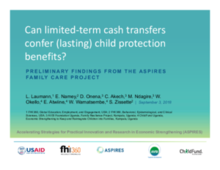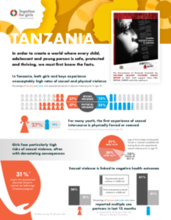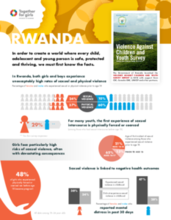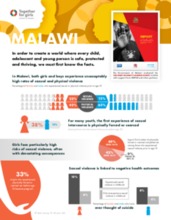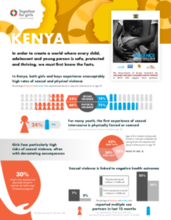Displaying 271 - 280 of 665
The purpose of this study is to point out the experience of sexual and physical exploitation and its determinant factors among street children in Addis Ababa, the capital city of Ethiopia.
This article focuses on the concept of “family” and family membership from the perspective of care leavers in Zimbabwe.
This presentation highlights the preliminary findings from the ASPIRES Family Care Projects as regards the impacts of cash transfers on child protection benefits.
This qualitative study explored life experiences of children living on the streets in Eldoret, Kenya.
This fact sheet presents country-specific data from the Violence Against Children Survey (VACS) in Uganda.
This fact sheet presents country-specific data from the Violence Against Children Survey (VACS) in Tanzania.
This fact sheet presents country-specific data from the Violence Against Children Survey (VACS) in Rwanda.
This fact sheet presents country-specific data from the Violence Against Children Survey (VACS) in Malawi.
This fact sheet presents country-specific data from the Violence Against Children Survey (VACS) in Kenya.
This fact sheet presents country-specific data from the Violence Against Children Survey (VACS) in Zimbabwe.

